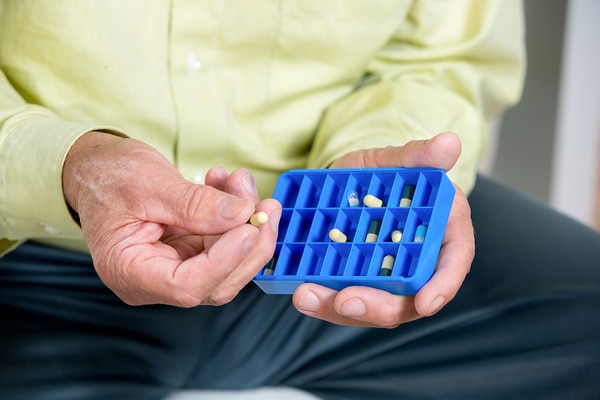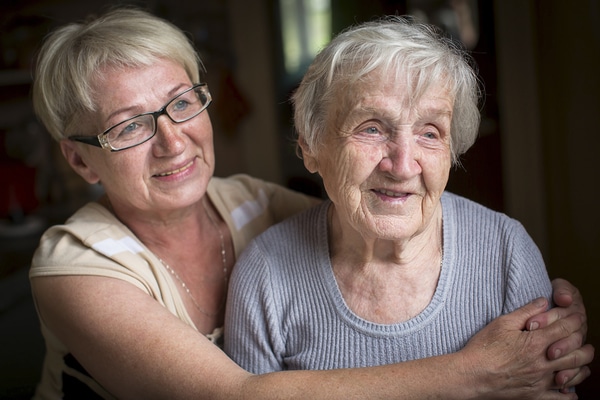

Prescription drug addiction is a growing problem among seniors.
Stephan Baldwin is the Director of Business Development for Assisted Living Center, an online directory of assisted living communities in St. Louis.
As seniors age, they face an increasing number of health problems. It’s almost taken for granted when a collection of prescription pill bottles start to accumulate for all their ailments, yet seniors don’t fit the mold of what most people would consider a drug addict.
The Betty Ford Foundation estimates that about 17% of people 65 or older currently misuse prescription medication to some degree. By 2020, that number is expected to double, and if this turns out to be true, more than 18 million seniors over the age of 65 will be addicted to some form of legally prescribed drug.
Many seniors take multiple prescriptions, so multiple issues can’t be traced to a single drug. According to a study conducted at the Center for Disease Control and Prevention, 76% of seniors over the age of 60 took two or more medications, and 37% took five or more.
Accidental misuse is common in seniors, especially anyone who may be suffering from symptoms of undiagnosed dementia. They take their medicine, forget about it, and then take the second dose too soon. Accidental overdoses can occur as a result.
Common Drugs Seniors Can Get Addicted To
Understanding what drugs seniors are at risk for abusing can help identify or prevent addiction and abuse.
- Opioids are frequently prescribed painkillers. Percocet, Oxycontin, Vicodin, and Codeine are all liberally prescribed but are also widely recognized for their risk of dependence. The dramatic increase in fatal overdoses has prompted some hospitals to stop prescribing them.
- Benzodiazepines treat several ailments but are most popular for helping people deal with anxiety. Valium, Xanax, and Klonopin all have a high risk of becoming habit forming. When they are combined with other drugs, the danger of using them increases, leading to dangerous medical consequences.
Signs of Elderly Prescription Drug Addiction
There are some common signs to look for if you are unclear whether or not your elderly parent is addicted to or abusing their medications.
- Do they appear to be disorientated, sedated, or impaired?
- Has the amount they take increased? Are they taking 4-6 pills when the dosage says 1?
- Do they request early refills, or change doctors or pharmacies?
- Have they complained that their prescriptions were stolen or misplaced?
- Have you noticed a change in their mood? Do they seem anxious, withdrawn, or depressed?
- Do they keep an emergency supply of pills in their pocket or purse?
- Do they demonstrate poor hygiene, lack of grooming, or changes in appetite?
If they display some of these signs, they may need professional help from a rehab center for drug detox.

Acknowledging prescription drug addiction in an elderly loved one is the first step to helping them.
Getting Help For Your Loved One
Does your aging parent or loved one show any of the signs of being addicted to painkillers or other medications? You can help them. Here’s how.
It’s important to stay actively involved in their life. Know what medications they are taking and, more importantly, why. Take note of what the dosage is on each prescription bottle, and keep track of the pill count. Make sure they’re taking the prescribed dosage and not abusing any of their medications.
If you suspect they’re taking more than the prescribed dose, you may have to take control and limit their access. Keep their medication locked up, and dispense their pills to them only as needed.
“They need your love and support more than they need your judgment.”
Accompany them to their doctor for annual checkups, and bring all of their prescriptions with them. The physician should be aware of every medication they’re taking and have an up-to-date list. If you think there is an issue of abuse, bring it to their attention so the doctors can offer alternatives. Ask if a psychological assessment is a good idea. Behavior and mood disorders contribute to a person’s problems with addiction.
Drug rehab centers have professionals with experience in treating elderly people with drug abuse problems. Many facilities have programs that are designed specifically for older adults.
This can be a difficult issue for you and your loved one. Remember that if they are going to overcome their addiction, they need your love and support more than they need your judgment. When love and patience aren’t enough, addiction treatment centers can lend their professional experience
Harris House is Here for You
Concerned about an aging loved one who struggles with addiction? We can help! Contact us today to learn more.







